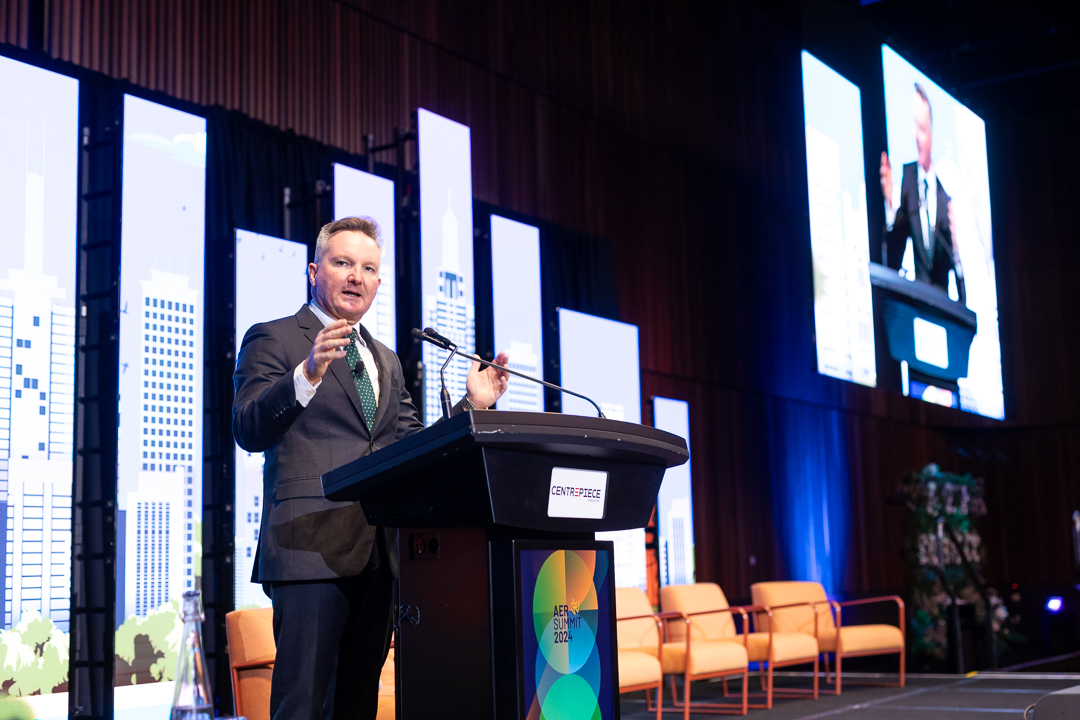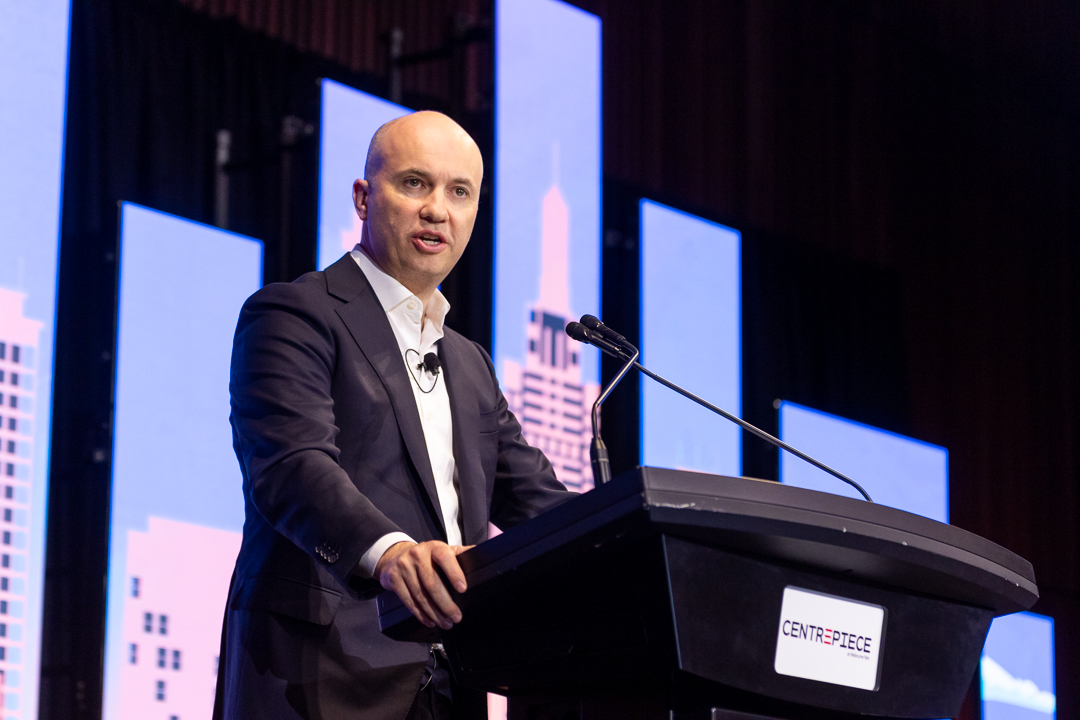Developing a robust climate change action plan has helped AGL secure access to capital, the energy company’s chief executive Damien Nicks told an emissions reduction summit in Melbourne today.
“Having a very strong climate transition action plan has given us access to capital,” Nicks told the Carbon Market Institute’s Australasian Emissions Reduction Summit in Melbourne.
“We refinanced close to $1.6 billion last year,” he said. “We did see a reduction in costs, particularly where it was directly related to green assets.”
Companies that don’t deliver on their transition plans will find that funds “start to dry up”, Nicks warned.
Nicks said AGL was focused on twin tasks – connecting its customers to a sustainable future, while also decarbonising and rebuilding its entire energy portfolio in the context of “a really complex” energy market.
Trevor Power, acting chief executive of the Net Zero Economy Authority, told the summit that industries facing complex decarbonisation choices are starting to factor in “the price of carbon in their future”, in large part due to pressure from investors and other stakeholders.
Pricing in emissions costs is more difficult to do than it would be under an economy-wide carbon price, but these costs are being reflected in company modelling and investment decisions, he said.
Power noted that some industries are contemplating big, billion-dollar decarbonisation investments.
“There’s a lot of money that needs to be put on the line,” he said, adding that Australia has some competitive advantages to attract these investments.
Chris Halliwell, co-founder and chief executive of carbon business CORE Markets, told the summit that “we need more ambition”.
“We need to find ways to scale investment in a collaborative way,” he said.
We will see an escalating carbon price over time, and in an escalating carbon price environment we need the various carbon markets to be able to interlink, Halliwell said.
If they don’t interlink “we’re not going to be able to unlock the lowest cost mitigation outcomes,” he said.
ANZ’s group executive, institutional, Mark Whelan, told the summit that the transition to net zero presented opportunities, “as well as a number of challenges”.
Part of the bank’s role is to help clients “lean into the opportunity”, he said.
It holds regular discussions with large emitters to understand what they are doing, and to make sure they are committed to action, “and then the financing can follow”, he said.
ANZ has invested about $80 billion into sustainable financial actions globally over the past years, and has now committed to invest an additional $100 billion, Whelan added.
Sharan Burrow, former general-secretary of the International Trade Union Confederation, told the summit that ensuring the support of local communities – and particularly of First Nations peoples – will be crucial.
“Democratic legitimacy to get this job done is only going to come from communities,” Burrow said, warning that climate change is already triggering rising inequality.
Commenting on calls to “fix permitting” to get clean economy projects up and running, Burrow said the opposition to permitting “is often because we have failed to include people from the beginning”.
***
About the 11th Annual Australasian Emissions Reduction Summit
The Carbon Market Institute’s annual Australasian Emissions Reduction Summit is focussing on Accelerating Policy and Investment. It is one of the largest and longest-running business and climate action events in the region and is taking place on Wurundjeri Country, Melbourne from 29-30 October 2024.
About the Carbon Market Institute: CMI is an independent member-based institute that promotes best practice in market-based solutions and decarbonisation investment to help limit warming to 1.5ºC. CMI’s around 150 strong membership includes organisations from across the economy, in Australia and the Asia Pacific region. CMI also administers the Australian Carbon Industry Code of Conduct, which was established in 2018 to promote and steward consumer protection and market integrity. The CMI Board updates CMI’s Policy Positions annually, which draw on practical insights from—but are ultimately independent of—members.



